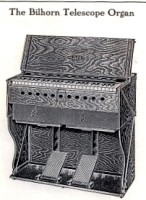Today in 1836 – Emily Elliot Born
Emily Elizabeth Steele Elliot was the niece of Charlotte Elliot, author of the hymnJust As I
Am. She wrote a number of hymns
for the church in England where her
father served as pastor. Elliot
published a book called Under
the Pillow containing 48 of her
hymns. It was designed for the
use of those in hospitals and
infirmaries.
The one song of hers in common
use today is the Christmas hymn
Thou Didst Leave Thy Throne.
It reminds us of the infinite
condescension required for God the
Son to take on our humanity. Though
“being in the form of God, [He] did not
consider it robbery [a thing to be clutched
and held on to] to be equal with God,
but made Himself of no reputation,
taking the form of a bondservant,
and coming in the likeness of men”
(Phil. 2:6-7).
The third stanza, a touching reference to
Christ’s words in Luke 9:58, is sometimes
omitted from our hymn books. It says:
The foxes found rest, and the
birds their nest
In the shade of the forest
tree;
But Thy couch was the sod, O Thou
Son of God,
In the deserts of Galilee.
(2) Today in 1855 – Louis Benson Born
Dr. Louis Fitzgerald Benson practiced law
for seven years. Then, after seminary
training, he became a Presbyterian pastor.
However, his most lasting contribution
to the church at large is likely his scholarly
work in the area of hymnology. Considered
one of the leading authorities on the hymns
of the Christian church, he had a private
library of some 9,000 volumes on the
subject, writing extensively on hymn
history himself. Louis Benson wrote a
number of hymns, and provided English
translations of the work of others.
One of his own is
O Sing a Song
of Bethlehem.
O sing a song
of Bethlehem,
of shepherds
watching there,
And of the news that came to
them from angels
in the air:
The light that
shone on Bethlehem fills
all the
world today;
Of Jesus’ birth
and peace on
earth the angels
sing alway.
He said that the ideal hymn should have the
qualities of: reverence, spiritual reality,
beauty, and cheerfulness. In his classic
work The Hymnody of the Christian Church,
he says:
Hymnody, then, is a spiritual function,
and its welfare proceeds from the heart.
Nevertheless its congregational expression
needs guidance and thoughtful ordering,
as much now as at Corinth in the days of
St. Paul.
WHAT MAKES A GOOD HYMN. To learn of
several other factors that work together
to make a good quality hymn, take a look
at my article on the subject.
(3) Today in 1865 – Peter Bilhorn Born
American gospel musician and evangelist
Peter Philip Bilhorn had a remarkable career
in many respects. His family was Bavarian,
and their original name was Pulhorn. This
was changed officially by a judge named
Abraham Lincoln (before he became president).
With his older brother, Bilhorn established
the Eureka Wagon and Carriage Works, in
Chicago. He also had a marvelous singing
voice, and entertained in the concert halls
and beer gardens in the area. But when he
came to Christ, he determined to use his
gifts in the service of the Lord.
Bilhorn became a much traveled evangelist,
also serving as a song leader in the early
ministry of Billy Sunday. At the World’s
Christian Endeavour Convention in London’s
Crystal Palace, he conducted a choir of 4,000
voices. On the invitation of Queen Victoria,
he sang several of his own songs in the
chapel at Buckingham Palace.
 Seeing the need for a small portable
Seeing the need for a small portable
pump organ that could be used in street meetings and on the mission field, Peter Bilhorn designed and built one
himself. The small but powerful organ
folded down into a unit about the size of a
large suitcase. The Bilhorn Brothers Organ
Company grew from this, and they sold a
variety of models worldwide. (I can recall
playing an organ of this type in Sunday
School, many years ago.) The inventor turned
all his profits from their sale back into the
Lord’s work.
One time, while conducting meetings in
Wisconsin, the evangelist retired to his
room for the night, but could not sleep.
He felt compelled to take his folding
organ and go out into the bitter cold.
Walking down a street, he saw a gleam
of light in a basement window. When
he knocked, he was admitted to a room
where a group of men were gambling.
He set up his organ and began to sing.
As a result of this bold ministry, six
men trusted in the Saviour that night.
Peter Bilhorn wrote around 2,000 gospel
songs, sometimes providing the tune
for others, as he did for I Will Sing the
Wondrous Story, and other times writing
both words and music himself, as for
Sweet Peace, the Gift of God’s Love.
The ensemble below plays the tune of
the latter hymn.
There comes to my heart one
sweet strain,
A glad and a joyous refrain,
I sing it again and again,
Sweet peace, the gift of God’s love.
Peace, peace, sweet peace,
Wonderful gift from above,
Oh, wonderful, wonderful
peace,
Sweet peace, the gift of
God’s love.
Through Christ on the cross peace
was made,
My debt by His death was
all paid,
No other foundation
is laid.
For peace, the gift of
God’s love.












No comments:
Post a Comment